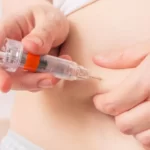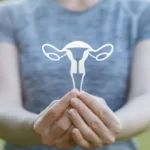
Are you and your partner ready to start a family? If you’re wondering how to get pregnant, you’ve come to the right place. This comprehensive guide will provide you with valuable information, tips, and techniques to increase your chances of conceiving a child. From understanding your fertility cycle to adopting a healthy lifestyle, we will cover everything you need to know to maximize your chances of getting pregnant naturally. So, let’s dive right in!
How to Get Pregnant?: Understanding the Basics
Before we delve into the details, let’s start by understanding the basics of how to get pregnant. Conception occurs when a sperm fertilizes an egg, resulting in the formation of an embryo. To increase your chances of getting pregnant, you need to ensure that sperm is present in the fallopian tubes at the time of ovulation.
Knowing Your Menstrual Cycle
Understanding your menstrual cycle is crucial when trying to conceive. Your cycle is divided into two phases: the follicular phase and the luteal phase. The follicular phase begins on the first day of your period and ends with ovulation, while the luteal phase starts after ovulation and lasts until your next period. Ovulation, the release of an egg from the ovary, usually occurs around the middle of your cycle.
Tracking Ovulation
To maximize your chances of getting pregnant, it’s important to track your ovulation. There are various methods you can use, including:
- Ovulation predictor kits (OPKs): These kits detect the surge in luteinizing hormone (LH) that occurs before ovulation.
- Basal body temperature (BBT) charting: By tracking your basal body temperature daily, you can identify a slight rise that indicates ovulation.
- Cervical mucus monitoring: Changes in the consistency and appearance of cervical mucus can indicate ovulation.
Maintaining a Healthy Lifestyle
A healthy lifestyle plays a significant role in increasing your fertility and improving your chances of getting pregnant. Here are some essential tips to keep in mind:
- Maintain a balanced diet: Include a variety of fruits, vegetables, whole grains, lean proteins, and healthy fats in your diet.
- Exercise regularly: Engage in moderate exercise regularly to maintain a healthy weight and improve your overall well-being.
- Avoid smoking and excessive alcohol consumption: Both smoking and excessive alcohol intake can reduce fertility in both men and women.
- Manage stress: High levels of stress can interfere with your fertility. Find effective stress management techniques such as yoga, meditation, or engaging in hobbies you enjoy.
How long it will take to get Pregnant?
Although there’s no exact way of knowing how long it’ll take you to get pregnant, there are statistics that show how long it usually takes couples to conceive. Most couples conceive within three months. It could take more time if you’re above the age of 35, have certain habits that might affect your fertility (like smoking), or have a medical condition that impairs fertility. So here are the figures:
Conception Statistics
30 percent get pregnant the first cycle (about one month), 59 percent get pregnant within three cycles (about three months), 80 percent get pregnant within six cycles (about six months), 85 percent get pregnant within 12 cycles (about one year), 91 percent get pregnant within 36 cycles (about three years) and 93 to 95 percent get pregnant within 48 cycles (about four years).
About 90 percent of couples conceive naturally. The remaining 10 percent are eventually diagnosed with infertility. Once couples diagnosed with infertility get professional help and/or medical treatment, a good number of them do manage to get pregnant. The rest may have to consider other options, like sperm donation, surrogacy, or adoption.
An infertility diagnosis means one year of trying without success. If you’ve tried to get pregnant for a year, it’s recommended to seek treatment. If you’re 35 or older, you don’t have to wait that long. See a fertility specialist if you’re not pregnant within six months.
On average, a woman’s fertility peaks when she’s 24 and begins to drop in her mid-30s. Although getting older makes it harder to get pregnant, many women have healthy, successful pregnancies well into their 40s.
How to Get Pregnant Fast?
The first thing you should do to boost your chances of getting pregnant as soon as possible is to find out when you ovulate, since that’s the only time when you can conceive. Next, time sex with ovulation. Studies show that couples who schedule sex to coincide with ovulation get pregnant faster. The best time to have sex is from two to three days before ovulation through the day you ovulate until two to three days after the same day.
As for couples who timed sex with ovulation: 38 percent were pregnant after one cycle, 68 percent were pregnant after three cycles, 81 percent were pregnant after six cycles and 92 percent were pregnant after 12 cycles.
In the meantime, get your body ready for pregnancy. Schedule a preconception checkup with a doctor or midwife to check your general and reproductive health are both. Learn which nutrients your body needs for pregnancy and adjust your diet accordingly if needed. The sooner you do that, the better – both for you and your future baby.
What is the Best Time to Get Pregnant?
Timing is your keyword. Sperm is around for two to three days, but the egg lives for only 12 to 24 hours. To increase your chances to get pregnant, have sex more than once around the time of ovulation. The ideal option is to have sexual intercourse two to three days before ovulation, again on the day you ovulate and two to three days after this day. That way, when an egg is released, it’s more likely to find a healthy supply of sperm waiting in the fallopian tube.
When is my Fertile Window?
So now, the important question is when exactly do you ovulate, and that depends on the length of your menstrual cycle. A woman typically ovulates about 14 days before her next period. If you have a 28-day cycle, which is the average, then you’d ovulate halfway through your cycle. But if your cycle is longer, let’s say, 35-day long, you would ovulate around day 21, not day 17.
Most women have about 12 periods a year, but some skip months or don’t get a period at all. Factors such as stress, heavy exercise, dramatic weight change or medical conditions can cause interruptions in your period. The more irregular your period is, the more difficult it is to predict when you ovulate. If your periods are irregular, you can figure out your most fertile days by tracking your ovulation each month, for example, by using a fertility monitor (if doing it on your own proves tricky).
What are Ovulation Symptoms?
But you can do more than just count the days. There are certain subtle signs that will help you know you’re ovulating. These include breast tenderness, slight discomfort in your middle abdomen, increased vaginal discharge that takes on a wetter, egg-white-type quality, a slight increase (about 0.4 to 1 degree Fahrenheit) in basal body temperature (BBT), which you can detect by taking your temperature each morning before you get out of bed, two days after you ovulate. Charting your BBT for a few months will give you a good idea of your cycle.
Of course, you don’t have to make a complicated schedule, planning sex ahead, measuring your BBT every morning and calculating your ovulation cycle. Try having sex at least twice a week and enjoy the process, and that will probably do the trick.
How to get Pregnant with Twins?
Getting pregnant with twins is primarily determined by genetics and chance. However, here are some factors that may increase your chances of conceiving twins:
- Family History: Twins are more likely to occur if you or your partner have a family history of twins, especially on the mother’s side.
- Age: Women over the age of 30 are more likely to conceive twins compared to younger women, as they tend to produce more follicle-stimulating hormone (FSH), which can cause multiple eggs to be released during ovulation.
- Fertility Treatments: Certain fertility treatments, such as in vitro fertilization (IVF) or the use of fertility drugs, can increase the likelihood of conceiving twins. These methods stimulate the ovaries to release multiple eggs, increasing the chance of multiple pregnancies.
- Diet: Some studies suggest that women who consume a diet high in dairy products, particularly milk, are more likely to conceive twins. However, more research is needed to confirm this.
- Timing: Having intercourse in close proximity to ovulation may increase the chances of conceiving twins. Ovulation prediction kits or monitoring basal body temperature can help determine the most fertile period.
How to get Pregnant with Baby Boy?
The sex of the baby is determined by the father’s sperm, which carries either an X chromosome (resulting in a girl) or a Y chromosome (resulting in a boy). While the sex of the baby is ultimately a matter of chance, some people may be interested in trying methods that are believed to increase the likelihood of conceiving a baby boy. However, it’s important to note that there is no scientific evidence to support the effectiveness of these methods. Here are a few theories that some people believe may increase the chances of conceiving a baby boy:
- Timing: Some theories suggest that having intercourse as close to ovulation as possible may increase the chances of conceiving a boy. This is based on the belief that Y-chromosome sperm (which produces a boy) are faster but less resilient than X-chromosome sperm (which produces a girl).
- Sexual Positions: Some suggest that certain sexual positions, such as deeper penetration, may favor the conception of a boy. However, there is no scientific evidence to support this claim.
- Diet: Some theories propose that altering the mother’s diet to be higher in potassium and sodium, while lower in calcium and magnesium, may increase the chances of conceiving a boy. However, more research is needed to confirm these claims.
How to get Pregnant with Baby Girl?
The sex of the baby is determined by the father’s sperm, which carries either an X chromosome (resulting in a girl) or a Y chromosome (resulting in a boy). While the sex of the baby is ultimately a matter of chance, some people may be interested in trying methods that are believed to increase the likelihood of conceiving a baby girl. However, it’s important to note that there is no scientific evidence to support the effectiveness of these methods. Here are a few theories that some people believe may increase the chances of conceiving a baby girl:
- Timing: Some theories suggest that having intercourse a few days before ovulation may increase the chances of conceiving a girl. This is based on the belief that X-chromosome sperm (which produces a girl) are slower but more resilient than Y-chromosome sperm (which produces a boy).
- Sexual Positions: Some suggest that certain sexual positions, such as shallow penetration, may favor the conception of a girl. However, there is no scientific evidence to support this claim.
- Diet: Some theories propose that altering the mother’s diet to be higher in calcium and magnesium, while lower in potassium and sodium, may increase the chances of conceiving a girl. However, more research is needed to confirm these claims.
What are Tips for getting Pregnant at age 30-35?
If you’re looking for tips on getting pregnant between the ages of 30 and 35, here are some suggestions:
- Maintain a healthy lifestyle: Focus on maintaining a balanced diet, regular exercise, and a healthy weight. Avoid smoking, excessive alcohol consumption, and illicit drugs, as they can affect fertility.
- Track your menstrual cycle: Monitor your menstrual cycle to identify the most fertile days. Ovulation usually occurs around the middle of your cycle, so tracking your cycle can help you determine the best time to try to conceive.
- Have regular intercourse: Aim to have regular intercourse, ideally every 2-3 days throughout your menstrual cycle, to maximize your chances of conception.
- Manage stress: High levels of stress can negatively impact fertility. Find healthy ways to manage stress, such as practicing relaxation techniques, exercising, or seeking support from a counselor or therapist.
- Consider preconception health check-ups: Schedule a preconception visit with your healthcare provider to discuss any concerns, ensure that you’re up to date on vaccinations, and address any existing medical conditions that may affect fertility.
- Take prenatal vitamins: Start taking a prenatal vitamin that contains folic acid before trying to conceive. Folic acid helps reduce the risk of certain birth defects.
- Be patient: It’s normal for it to take time to conceive, even for individuals in their 30s. Don’t get discouraged if it doesn’t happen right away. However, if you’ve been actively trying to conceive for over a year without success, consider speaking with a healthcare provider for further evaluation.
How to get Pregnant after Period?
Getting pregnant after your period depends on the length of your menstrual cycle and the timing of ovulation. While it is less common to conceive immediately after your period, it is still possible, especially if you have a shorter menstrual cycle.
Here are some key points to consider:
- Track your menstrual cycle: Start by understanding the length of your menstrual cycle. The cycle begins on the first day of your period and ends on the day before your next period starts. Ovulation usually occurs around the middle of the cycle. If you have a regular cycle, you can estimate your fertile window by subtracting about 14 days from the length of your cycle. For example, if you have a 28-day cycle, ovulation is likely to occur around day 14.
- Monitor ovulation signs: Pay attention to changes in your cervical mucus, basal body temperature, or use ovulation prediction kits to help identify when you’re ovulating. These methods can provide clues about the most fertile days of your cycle.
- Have intercourse during the fertile window: To maximize your chances of conception, try to have regular intercourse during your fertile window, which usually spans a few days before and after ovulation.
- Consider sperm lifespan: Sperm can survive inside the female reproductive system for up to five days. Therefore, even if you have intercourse a few days before ovulation, it’s still possible for the sperm to fertilize the egg once it’s released.
- Stay healthy: Maintaining a healthy lifestyle, including a balanced diet, regular exercise, managing stress, and avoiding substances harmful to fertility, can contribute to overall reproductive health.
What are the Old Tricks for getting Pregnant?
Throughout history, various traditional beliefs and practices have been considered “old tricks” for increasing the chances of getting pregnant. However, it is important to note that these methods lack scientific evidence and may not be effective. Here are a few examples:
- Moon phases and lunar calendars: Some people believe that timing intercourse with specific phases of the moon can influence fertility. However, there is no scientific basis for this belief.
- Eating certain foods: Folklore suggests consuming specific foods, such as yams, honey, or certain herbs, to increase fertility. While a healthy diet is important for overall reproductive health, there is no scientific evidence linking these specific foods to increased fertility.
- Wearing special garments or charms: Some cultures have traditions of wearing special garments or carrying charms believed to enhance fertility. However, their effectiveness has not been scientifically proven.
- Folk remedies: Traditional remedies or herbal concoctions are sometimes recommended to boost fertility. It is essential to approach such remedies with caution, as their safety and effectiveness are often not supported by scientific research.
Conclusion
Embarking on the journey of starting a family and wondering how to get pregnant can be both exciting and overwhelming. By understanding your menstrual cycle, tracking ovulation, and adopting a healthy lifestyle, you can significantly increase your chances of conceiving a child naturally. Remember to be patient and take care of your emotional well-being throughout the process. If you have any concerns or questions, don’t hesitate to reach out to a healthcare professional who can provide personalized guidance. Best of luck on your path to parenthood!
Frequently Asked Questions
How Many Drops of Sperm is Needed to get Pregnant?
To achieve pregnancy, only one sperm is needed to fertilize an egg, regardless of the amount of semen or number of sperm released in a single ejaculation. Although a healthy male can release millions of sperm, only a few hundred can reach the fallopian tubes where fertilization takes place. Therefore, successful conception depends on the timing of intercourse and the fertility of both partners, which can be influenced by various factors including age, health, and lifestyle choices.
How to Put Pillow Under Hips to Get Pregnant?
To increase your chances of getting pregnant, place a pillow under your hips after intercourse. Lie on your back and place a cushion under your hips, raising your buttocks and keeping your legs straight. This helps the sperm flow towards the cervix and reach the fallopian tubes more easily. Remain lying down for 10-15 minutes after intercourse to give the sperm enough time to reach the cervix. Remember, other factors like timing and fertility also play a crucial role in achieving pregnancy.
How to Get Pregnant with Ovarian Cysts?
To get pregnant with ovarian cysts, it’s important to work closely with a healthcare provider to manage the cysts and improve fertility. Treatment options may include medication or surgery, depending on the size and type of cysts. Maintaining a healthy lifestyle, including a balanced diet, regular exercise, and stress reduction, can also help improve fertility. Consulting a fertility specialist may be beneficial for those struggling to conceive with ovarian cysts.
How to Get Pregnant Fast with Retroverted Uterus?
To get pregnant fast with a retroverted uterus, it’s important to have regular intercourse during your fertile period and remain lying down for a few minutes after intercourse. A retroverted uterus typically does not affect fertility, but consulting with a healthcare provider or a fertility specialist can help address any issues related to conception.
How often should we have Sex when trying to Conceive?
It’s generally recommended to have sex every two to three days throughout your menstrual cycle to ensure sperm is present in the fallopian tubes during ovulation.
Can I get Pregnant while on my Period?
While it’s less likely, it’s still possible to get pregnant while on your period. Sperm can survive in the female reproductive system for up to five days, so if you have a short menstrual cycle, ovulation could occur shortly after your period ends.
Does Age affect Fertility?
Yes, age can significantly impact fertility, especially for women. As women age, their egg quantity and quality decline, making it harder to conceive. The chances of getting pregnant decrease significantly after the age of 35.
Can certain Medications affect Fertility?
Yes, certain medications, such as some antidepressants and chemotherapy drugs, can affect fertility. It’s important to consult with your healthcare provider about any medications you’re taking if you’re planning to get pregnant.
Are there any Natural Remedies to boost Fertility?
While there’s no guaranteed natural remedy to boost fertility, some studies suggest that certain lifestyle changes and supplements, like acupuncture, herbal supplements, and fertility-friendly diets, may improve fertility in some individuals. It’s essential to consult with a healthcare professional before trying any natural remedies.
How long does it usually take to get Pregnant?
The time it takes to get pregnant can vary from couple to couple. On average, it can take around three months to a year of trying to conceive before successfully becoming pregnant. However, if you’ve been actively trying for more than a year without success, it’s recommended to consult a fertility specialist for further evaluation.












